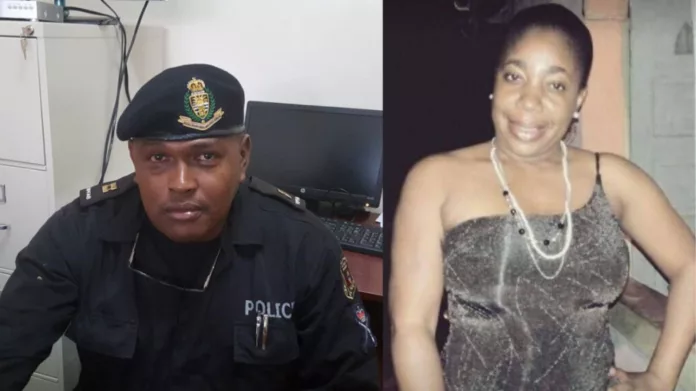By Latrishka Thomas
As the passport fraud trial continues to unfold, suspense is building with only a handful of witnesses left to testify.
And adding another layer of intrigue to the case involving suspended Assistant Superintendent of Police (ASP) Ray John and former passport worker Shakema Charles was the evidence of Detective Constable Kemar Burke who is attached to the Digital Evidence and Cyber-crime Unit of the Barbados Police Service.
Burke, who has worked in the field of digital forensic examinations since 2010, was deemed an expert witness in the trial where John and Charles are alleged to have conspired with Vincentian resident Lonzel Jones to create the fraudulent passport pages between January 1 and April 7 2018.
To recap, in mid-January Superintendent Lisbon Michael, a key figure in the investigation, testified on day one of the trial that John had asked him to deliver an envelope to Jones during a trip to St Vincent in April 2018.
According to John’s initial statement to the police, the envelope contained an unsealed “draft lease” for a club in St Vincent, which Jones was supposed to sign. But Jones admitted to the police that they were passport bio pages.
He said John was the one who first contacted him to help him create passport bio pages for people who wanted to buy land in Antigua and Barbuda.
Those bio pages were discovered by Vincentian police when Jones was handing them over to someone else near the Argyle International Airport on April 6 2018.
A Vincentian police officer named Sorenson Douglas told the court that they found a male Iraqi passport bio page, a female Sudanese bio page, a male Pakistani bio page, three Antiguan and Barbudan male bio pages, along with one female bio page, another which had a photograph of a male but was incorrectly labelled as female, and one with both male and female pictures and unrecognisable writing.
Yesterday, Burke told the court that on April 24 2018 he came to Antigua on duty and met with Clayton Davis, a now retired Assistant Commissioner of Police who was initially in charge of the case.
He said he was given electronic devices belonging to both John and Charles which he examined and found information related to the case on Charles’ phone.
His findings were placed on CDs, DVDs and in a report — which were presented in court.
The court saw 10 images, the first of which was Charles’ passport bio page which the witness said was taken with her phone’s camera on March 11 2018 at 16:25 hours.
He explained that the other nine images were cache images which, he said, means that “they are miniature versions of an actual image that digital devices create in order to allow for faster loading of the image when opened by a user”.
Burke said that unlike image one, these have no residual data because cache images are what remain after an original image is deleted unless the cache is also cleared out.
Those images, which the court scanned through, were passport bio pages matching those that the police discovered in St Vincent.
Burke identified several phone numbers John appeared to have been using to communicate with Charles. He then went on to provide details from his report concerning chats from one of the numbers.
Burke then detailed conversations between John and Charles starting from February 27 2018, revealing the relationship between the two, who share a child.
As the witness reached the messages dated March 20 2018, all ears were attentive as he read messages where Charles told John that “something” looks “wrong” and “off”.
John responded, stating that it was printed on the wrong paper. Charles then mentioned she couldn’t see the signature.
John indicated that he compared “it” to his passport and later called her an “expert” on the matter.
Charles requested him to pass by with “the things” for further discussion.
During cross-examination, John’s lawyer, Hugh Marshall, questioned how the witness determined who was operating the phone at those times. The witness responded that the information “suggested” it was the two defendants behind the screens.
Marshall went on to identify an error in the witness’s report, suggesting potential mistakes throughout.
He persistently challenged the report’s integrity before concluding his cross-examination.
Subsequently, the case was adjourned until Thursday.
Charles is represented by attorney Michael Archibald.

